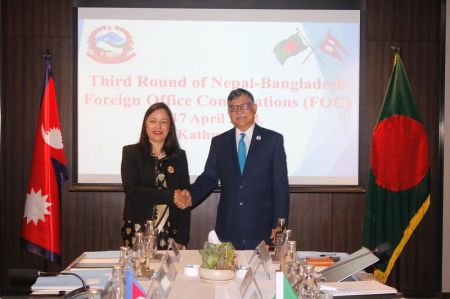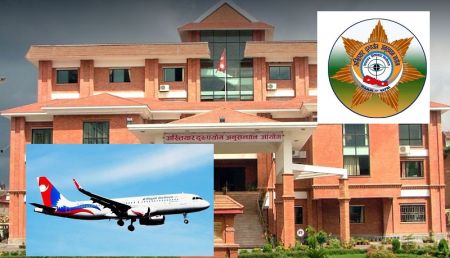.jpg)
--By Gaurav Aryal
The world seems to be uniting under a single financial reporting language. International Financial Reporting Standards (IFRS) is becoming the universally recognised accounting standard in a multitude of jurisdictions across the globe. As of now, IFRS has been accepted in over 115 countries. Nepal is also complying with the IFRS, starting with listed companies and state owned enterprises, over a three-year period starting in 2014. Nepal is adopting IFRS in the form of Nepal Financial Reporting Standards (NFRS) and is expected to fully implement it by 2016.
The Need Driven Approach
The need for a single financial reporting standard is driven by the wave of globalisation. In today’s dynamic world where the trend is to go global, financial reports too need to have a globally recognised format even though companies situated in different corners of the world prepare them. Investors tend to invest in companies across countries, and they cannot afford to have financial reports coming in different formats and structures, as these statements wouldn’t be comparable and hence hampering easy assessment of performance of various investments. This is driving the need for one common set of standards.
The IFRS has emerged as the agreed standard for companies and governments across the world. The European Union (EU) adopted IFRS in 2005 becoming the first bloc of countries to use this standard. Several other countries including small economies have moved onto the IFRS. U.S., Japan, China and India, some of the largest economies, too are making efforts towards convergence with or adoption of these standards. The Indian government has recently declared that it will converge in the fiscal year 2016/17. Once these large economies converge with the IFRS, jurisdictions covering around 80 to 90 per cent of the world’s GDP will be reporting under IFRS standards.
Also, as part of the global compliance to IFRS, several donor agencies and development partners have been demanding IFRS compliant reports before they provide aid and development support. Therefore, countries like Nepal too cannot afford to remain behind.
Challenging Convergence
However, convergence with the universal financial reporting standards does not come sans challenges. There are challenges on the people, systems and processes front, as well as challenges which may arise due to the complexities within the standards. On the people front, employees, top managers, bankers, auditors, analysts, investors and regulators need to understand what these new standards are and what they mean. So, a huge exercise for capacity building is necessary before implementing the IFRS. People across the entire corporate ecosystem must be aware about and appreciate the impact of these standards. Similarly, systems and processes are another area where several changes would be required as they would be responsible for processing the information required for financial reporting.
Likewise, the standard itself brings about its own set of challenges. For example, Nepal does not have a standard on business consolidation, and does not yet have a provision to present information of different subsidiaries as a single economic entity. This could limit the reflection of the true state of affairs as an economic entity rather than a legal one. IFRS is a set of principle based standards that looks at substance of transaction rather than the legal form.
Lacking Preparedness
The Nepali corporate sector seems to not have yet made any impact assessment on the convergence of IFRS. Many have a ‘when it happens, it happens’ attitude. The lack of preparedness could prevent the corporate sector from knowing where to start the actual process of adopting the new standards. So, there is a need to study the issues and assess probable impacts. When the EU adopted IFRS, they had communicated with the stakeholders two years in advance about possible impacts. So, when the impact was visible, they were aware why and how things were happening.
IFRS itself is undergoing changes. Nepal has adopted the 2012 version of IFRS. However, in the following two years several standards have undergone changes including revenue recognition and financial instruments. Nepal needs to be clear on which set of standards it needs to apply. If an earlier version is applied, the country could lag behind the rest of the world. It is important to make sure when converging, one is adopting the most recent set of standards.





















